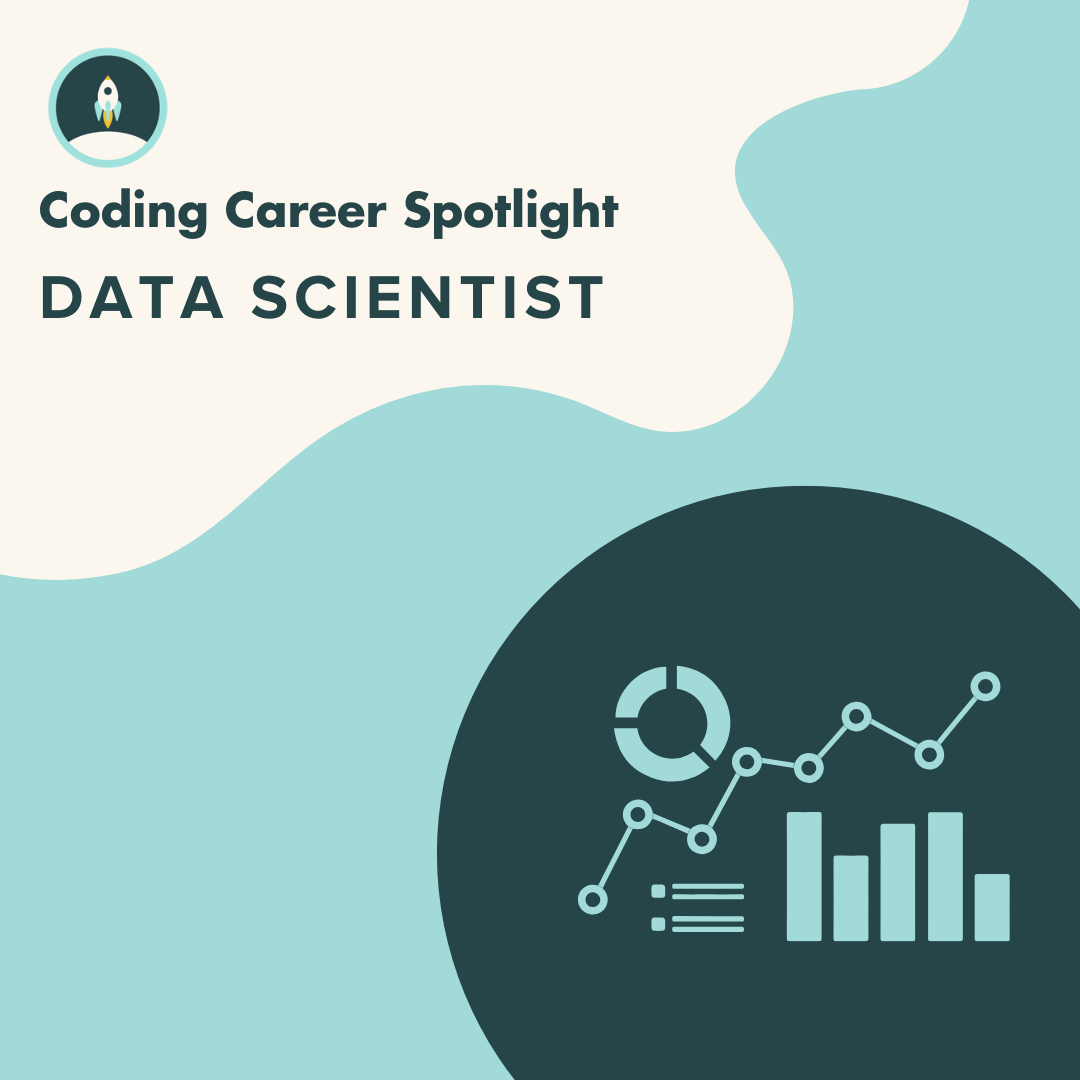Coding Career Spotlight: Data Scientist

Decode the World: Build Insights with Code
When you think about careers at the intersection of tech and creativity, data science might not be the first thing that comes to mind. But with its mix of problem-solving, storytelling, and cutting-edge technology, data science is one of the most exciting fields to explore today. From Netflix recommendations to medical breakthroughs, data scientists are changing the way we understand and interact with the world.
WHAT IS A DATA SCIENTIST?
Data scientists are the detectives of the digital age. They collect, clean, and analyze large sets of data to uncover patterns and insights that inform decisions. Whether it’s predicting future trends, optimizing business processes, or even creating personalized customer experiences, data scientists bridge the gap between raw numbers and actionable knowledge.
Data scientists work in virtually every industry—from healthcare and finance to entertainment and climate science. It’s a career where curiosity and creativity are just as important as technical skills.
WHAT SKILLS DO DATA SCIENTISTS NEED?
Data science is a multidisciplinary field, meaning professionals draw on a wide range of skills:
- Technical Proficiency: Data scientists need to know programming languages like Python, R, and SQL to manipulate and analyze data. They also use tools like TensorFlow and scikit-learn for machine learning projects.
- Statistics and Math: Understanding probability, statistical models, and linear algebra is critical for interpreting data and making accurate predictions.
- Communication: A key part of the role is explaining complex findings to non-technical audiences. Data scientists must craft clear and compelling stories from their analysis.
- Curiosity: Perhaps the most important skill of all. Data science thrives on asking the right questions and exploring unexpected answers.
HOW DOES CODING FIT IN?
Coding is the backbone of data science. Whether you’re cleaning messy data, running algorithms, or visualizing your results, knowing how to code is essential.
- Python is widely used for data analysis and machine learning.
- R specializes in statistical modeling and data visualization.
- SQL is indispensable for querying and managing databases.
The ability to write efficient and adaptable code is what allows data scientists to work with massive datasets, solve complex problems, and generate meaningful insights.
Keep an eye out for more posts in our Coding Career Spotlight series. From cybersecurity to game development to data science, there’s no limit to where coding can take you. Ready to decode the world? Start your journey today.